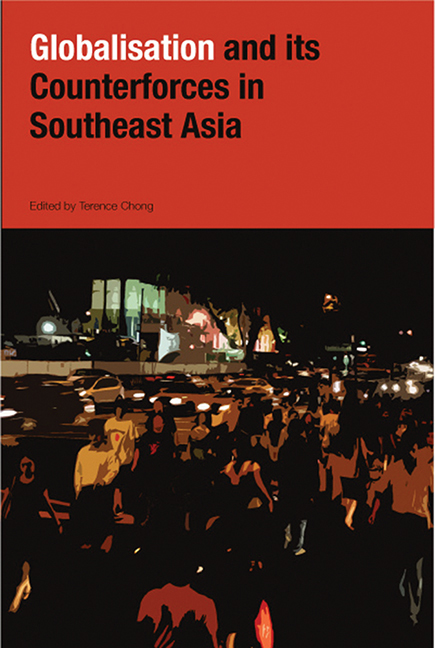Book contents
- Frontmatter
- Contents
- Foreword
- Preface
- The Contributors
- Introduction
- Part I The Political Contradictions of Globalization
- Part II Economic Regionalism and Global Influences
- Part III Local Security, Global Insecurity
- Part IV Social Processes: Arrested Development
- 12 Reluctant Tigers: Economic Growth, Erratic Democratization Processes and Continuing Political Gender Inequality in Southeast Asia
- 13 Women's Emancipation in the Philippines: A Legacy of Western Feminism?
- 14 Women's Emancipation in the Philippines: A Legacy of Western Feminism?
- Part V Cultural Production in the Global Matrix
- Index
12 - Reluctant Tigers: Economic Growth, Erratic Democratization Processes and Continuing Political Gender Inequality in Southeast Asia
from Part IV - Social Processes: Arrested Development
Published online by Cambridge University Press: 21 October 2015
- Frontmatter
- Contents
- Foreword
- Preface
- The Contributors
- Introduction
- Part I The Political Contradictions of Globalization
- Part II Economic Regionalism and Global Influences
- Part III Local Security, Global Insecurity
- Part IV Social Processes: Arrested Development
- 12 Reluctant Tigers: Economic Growth, Erratic Democratization Processes and Continuing Political Gender Inequality in Southeast Asia
- 13 Women's Emancipation in the Philippines: A Legacy of Western Feminism?
- 14 Women's Emancipation in the Philippines: A Legacy of Western Feminism?
- Part V Cultural Production in the Global Matrix
- Index
Summary
INTRODUCTION: DEMOCRACY AND POLITICAL GENDER EQUALITY
In all contemporary societies, women as a group continue to face social and political subordination. This is a fate women share with many other groups, the difference being that gender is a group that cuts across class as well as ethnicity and thus has equal bearing on all societies. One illustrative example, and, arguably, one of the most important keys to change, is the continued under-representation of women in politics. Women constitute 50 per cent of the world'S population, but only make up just over 14 per cent of the world'S political representatives at the beginning of the 21st century. Who holds political office, and who does not, has for centuries mirrored power relationship in societies. Important societal transformations have, however, seemed to hold a promise of change. Industrialization and economic growth lay the foundation for change by bringing subordinate groups forward to a place in the public sphere where new roles have been possible. Globalization has rendered these forces relevant to almost all societies. Democracy should, ideally, enhance equality in society and give everyone, including women, equal rights and possibilities to influence their situation.
The general aim of this short study of Southeast Asia, and of Thailand in particular, is to investigate these complex societal transformations and their impact on politics and gender. While it is true that developments such as economic growth and democratization have impacted societies profoundly, it cannot be assumed that such complex processes will function in simple and predictable ways. There are, of course, important global indicators, drawn from statistical evidence, which can provide guidance in the right direction. In addition, it is important to focus on the extent and form of these processes as well as on the response of particular actors. This will enable us to better interpret and predict the impact that broad societal changes have on democratic arrangements affecting a variety of things, including women'S political representation.
- Type
- Chapter
- Information
- Globalization and its Counter-Forces in Southeast Asia , pp. 279 - 295Publisher: ISEAS–Yusof Ishak InstitutePrint publication year: 2008

